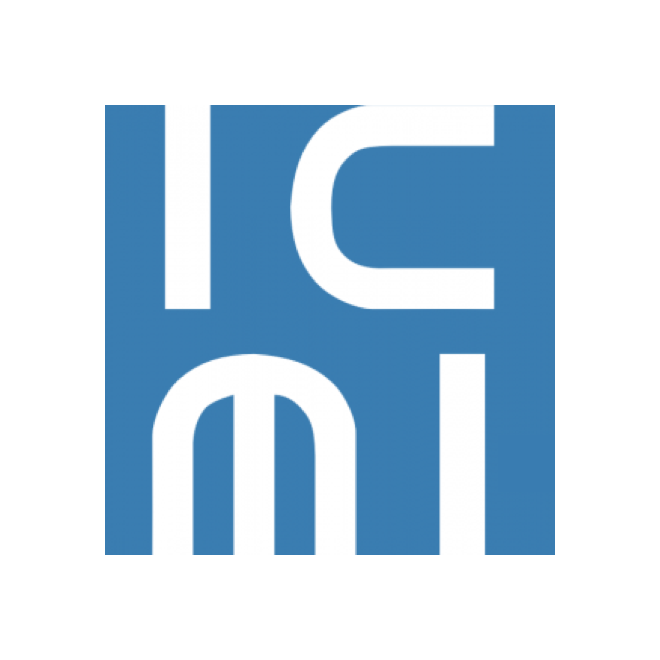European Research in Mathematics Education III
Proceedings of the
Third Conference of the
European Society for Research in Mathematics Education
28 February – 3 March 2003
Bellaria, Italia
Welcome to CERME 3
CERME is a conference designed to foster a communicative spirit. It deliberately and distinctively moves away from research presentations by individuals towards collaborative group work. Its main feature is to be a number of thematic groups whose members will work together in a common research area.
CERME is organised by ERME (link to ERME: History, aims and…) whose chief aims are to promote communication, cooperation and collaboration in research in mathematics education in Europe assuming that (i) we need to know more about the research which has been done and is ongoing, and the research groups and research interests in different European countries and (ii) we need to provide opportunities for cooperation in research areas and for inter-European collaboration between researchers in joint research projects.
By realizing its third Conference ERME Association consolidates its role of promoting exchange and collaboration among researchers from different countries. The high number of participants, coming from European and non European countries was a pleasant surprise which overcame our prevision based on the success of the previous Conferences.
Since its first appearance CERME conference has presented itself with a very peculiar character, which distinguishes it from most of the international conferences devoted to mathematics education. Its main characteristic is that of being based on the belief in collaboration and reciprocal intellectual enrichment coming from differences that want to communicate.
Debate and comparison are the inspiring soul of our association, and the realization of the conference has been planned in this spirit.
In order to maximize the possibility of communicating and discussing, in order to give everybody the possibility of expressing oneself, the general structure of the conference was designed in thematic working groups, which started their activity far before the actual beginning of Conference. According to conference organization, a team of co-leaders are in charge of guiding the functioning of the working groups: collecting and organizing the pears-revision of the contributions. Such a preparing work aims at constructing a common way of work, sharing a common set of research objectives, rooted in a shared set of key questions to which the participants of the working group feel the need to answer.
CERME 3 was structured in 12 Thematic Working Groups (link to the list of the TWG). The themes, selected by the Program Committee, listed below, partly correspond to those of the previous conference, but some new themes where added. As far this selection is concerned, continuity witness of the vitality of the group, settled in the previous Conference, and the wish of participants to go on developing their previous work. Some themes seems to have disappeared, but actually certain groups merged or were restructured, according new interests expressed by the participants of previous CERME.
According to the aim of reporting on how the conference was realized, without loosing its spirit, these proceedings contains the reports on the activities developed in all the Thematic Working Groups.
The different contribution to each TWG are introduced and framed by a short presentation by the leader and co-leaders.
Besides the work of the Thematic Working Groups, a plenary session was organize so that participants could have the opportunity to meet and reflect on a theme that cut across the interests of all.
The Relationships between theory and practice (link to the Panel/Debate) was the theme on which researchers from different countries were asked to contribute to the debate, providing stimulating inputs coming from their experience. The panelists were Mariolina Bartolini Bussi from University of Modena in Italy, Christer Bergsten from Linköpings University in Sweden and Konrad Krainer from the University of Klagenfurt in Austria, while Barbara Jaworski from Agder University College, Norway was Chair of the panel.
The electronic version of these proceedings is partially organized as an hypertext, links are foreseen in order to make easy to browse the whole collection by the names of the authors and the title of the working groups.
As all the publication this proceedings would have never been realized without the patience and the care of an text editor, I want to express all my thanks to Mirko Maracci for his excellent work.
Pisa, May 2004
Maria Alessandra Mariotti
| Thematic Working Groups | Panel / Debate |
| Table of contents | List of Participants |
Programme Committee
João Pedro da Ponte (Portugal) – Coordinator Christer Bergsten (Sweden) Barbara Jaworski (United Kingdom) Colette Laborde (France) Maria Alessandra Mariotti (Italy) Perla Nesher (Israel) Heinz Steinbring (Germany) Juliana Szendrei (Hungary)
Chief Editor
Maria Alessandra Mariotti
Editorial Board
G. Abreu, A. Arcavi, M. Bartolini Bussi, C.Batanero,
L. Bazzini, C. Bergsten, R. Biehler, J. Carrillo, G. Chiappini,
J.-L. Dorier, J. Evans, R. Even, F. Favilli, B. Grevholm,
N. Gorgorió, A. Gutierrez, M. Hannula, M. Heiny, M. Henry,
R. vom Hofe, B. Jaworski, K. Jones, M. Johnsen-Høines,
C. Knipping, K. Krainer, G. Krummheuer, J.-B. Lagrange, T. Lingefjärd,
G.H. Littler, P. Nesher, B. Parzysz, B. Pedemonte, A. Pesci,
A. Peter-Koop, G. Philippou, D. Pratt, A. Price, M. Rodd, C. Sackur,
L. Serrazina, R. Straesser, J. Szendrei, P. Tsamir, R. Zan
Local Organizers
Maria Alessandra Mariotti (Italy) – Secretary Michele Cerulli (Italy), Rossella Garuti (Italy), Mirko Maracci (Italy), Aurelia Orlandoni (Italy)
Last modified: 2004 May 14

